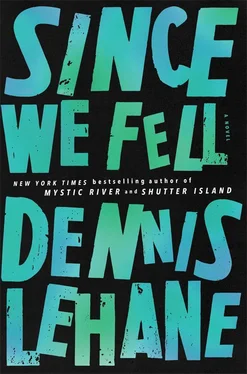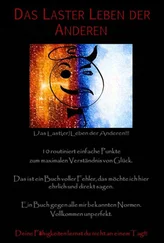Dennis Lehane - Since We Fell
Здесь есть возможность читать онлайн «Dennis Lehane - Since We Fell» весь текст электронной книги совершенно бесплатно (целиком полную версию без сокращений). В некоторых случаях можно слушать аудио, скачать через торрент в формате fb2 и присутствует краткое содержание. Город: New York, Год выпуска: 2017, ISBN: 2017, Издательство: Ecco, HarperCollins, Жанр: Триллер, roman, на английском языке. Описание произведения, (предисловие) а так же отзывы посетителей доступны на портале библиотеки ЛибКат.
- Название:Since We Fell
- Автор:
- Издательство:Ecco, HarperCollins
- Жанр:
- Год:2017
- Город:New York
- ISBN:978-0-06-212938-3
- Рейтинг книги:5 / 5. Голосов: 1
-
Избранное:Добавить в избранное
- Отзывы:
-
Ваша оценка:
- 100
- 1
- 2
- 3
- 4
- 5
Since We Fell: краткое содержание, описание и аннотация
Предлагаем к чтению аннотацию, описание, краткое содержание или предисловие (зависит от того, что написал сам автор книги «Since We Fell»). Если вы не нашли необходимую информацию о книге — напишите в комментариях, мы постараемся отыскать её.
is a novel of profound psychological insight and tension. It is Dennis Lehane at his very best.
Since We Fell — читать онлайн бесплатно полную книгу (весь текст) целиком
Ниже представлен текст книги, разбитый по страницам. Система сохранения места последней прочитанной страницы, позволяет с удобством читать онлайн бесплатно книгу «Since We Fell», без необходимости каждый раз заново искать на чём Вы остановились. Поставьте закладку, и сможете в любой момент перейти на страницу, на которой закончили чтение.
Интервал:
Закладка:
Dennis Lehane
Since We Fell
In memory of David Wickham,
a prince of Providence
and a real cool cat
When you just give love and never get love
you’d better let love depart
I know it’s so, and yet I know
I can’t get you out of my heart
— BUDDY JOHNSON, “SINCE I FELL FOR YOU”Masked, I advance.
— RENÉ DESCARTESPrologue
After the Staircase
On a Tuesday in May, in her thirty-fifth year, Rachel shot her husband dead. He stumbled backward with an odd look of confirmation on his face, as if some part of him had always known she’d do it.
He looked surprised too. She assumed she did as well.
Her mother wouldn’t have been surprised.
Her mother, who never married, wrote a famous book on how to stay married. The chapters were named after stages Elizabeth Childs, Ph.D., had identified in any relationship that began in a state of mutual attraction. The book was entitled The Staircase and became so successful that her mother was convinced (she’d say “coerced”) into writing two sequels, Reclimbing the Staircase and Steps of the Staircase: A Workbook, each of which sold more poorly than the last.
Privately, her mother thought all three books were “emotionally adolescent snake oil,” but she reserved a wistful fondness for The Staircase because she hadn’t been aware, when she was writing it, how little she actually knew. She said this to Rachel when Rachel was ten. That same summer, late into her afternoon cocktails, she told her, “A man is the stories he tells about himself, and most of those stories are lies. Never look too closely. If you uncover his lies, it’ll humiliate you both. Best to just live with the bullshit.”
Then her mother kissed her head. Patted her cheek. Told her she was safe.
Rachel was seven when The Staircase was published. She remembered the endless phone calls, the flurry of trips, her mother’s renewed dependence on smoking, and the desperate, chiseled glamour that overtook her. She remembered a feeling she could barely articulate, that her mother, never happy, grew even more bitter with success. Years later, she’d suspect the reason was because the fame and the money robbed her mother of excuses for her unhappiness. Her mother, brilliant at analyzing the problems of strangers, never had a clue how to diagnose herself. So she spent her life in search of solutions to problems that were born, raised, lived, and died within the boundaries of her own marrow. Rachel didn’t know any of that at seven, of course, or even at seventeen. She only knew that her mother was an unhappy woman, so she was an unhappy child.
When Rachel shot her husband, she was on a boat in Boston Harbor. Her husband remained on his feet for only the briefest of time — seven seconds? ten? — before he fell over the stern and into the water.
But in those final seconds, a catalogue of emotion found his eyes.
There was dismay. Self-pity. Terror. An abandonment so total it took thirty years off his life and turned him into a ten-year-old before her eyes.
Anger, of course. Outrage.
A sudden and fierce determination, as if, even as the blood spilled from his heart and over the hand he’d cupped below it, he’d be okay, he’d be fine, he’d get through this. He was strong, after all, he’d created everything of value in his life by force of will alone and he could will himself out of this.
Then the dawning realization: No, he couldn’t.
He looked right at her as the most incomprehensible of emotions staked its claim and subsumed all others:
Love.
Which was impossible.
And yet...
There was no mistaking it. Wild, helpless, pure. Blooming and splattering in tandem with the blood on his shirt.
He mouthed it, as he often did from the other side of crowded rooms: I. Love. You.
And then he fell off the boat and vanished beneath the dark water.
Two days before, if someone had asked her if she loved her husband, she would have said, “Yes.”
Actually, if someone had asked her the same question as she pulled the trigger, she would have said, “Yes.”
Her mother had a chapter about that — Chapter 13: “Discordance.”
Or was the next chapter — “The Death of the Old Narrative” — more applicable?
Rachel wasn’t sure. She got them confused sometimes.
I
Rachel in the Mirror
1979–2010
1
Seventy-Three Jameses
Rachel was born in the Pioneer Valley of western Massachusetts. It was known as the Region of the Five Colleges — Amherst, Hampshire, Mount Holyoke, Smith, and the University of Massachusetts — and it employed two thousand faculty to teach twenty-five thousand students. She grew up in a world of coffee shops, B&Bs, wide town commons, and clapboard houses with wraparound porches and musky attics. In autumn, leaves fell by the tubful and choked the streets, spilled onto sidewalks, and clogged fence holes. Some winters, snow encased the valley in silence so dense it became its own sound. In July and August, the mail carrier rode a bicycle with a bell on the handlebar, and the tourists arrived for summer stock theater and antiquing.
Her father’s name was James. She knew little else about him. She recollected that his hair had been dark and wavy and his smile sudden and unsure. At least twice he’d taken her to a playground with a dark green slide where the Berkshire clouds hung so low he’d needed to wipe the swing free of condensation before he could place her on it. On one of those trips he’d made her laugh but she couldn’t recall how.
James had been an instructor at one of the colleges. She had no idea which one or if he’d been an adjunct, an assistant professor, or an associate on tenure track. She didn’t even know if he taught at one of the Five Colleges. He could have been at Berkshire or Springfield Technical, Greenfield CC or Westfield State, or any of a dozen other colleges and junior colleges in the region.
Her mother was teaching at Mount Holyoke when James left them. Rachel was just short of three and could never say with certainty if she’d borne witness to the day her father walked out of the house or if she’d just imagined it to suture the wound his absence left behind. She heard her mother’s voice coming through the wall of the small house they’d rented that year on Westbrook Road. Do you hear me? If you go out that door, I will expunge you. Shortly thereafter, the bump of a heavy suitcase on the stairs out back followed by the snap of a trunk closing. The rasp and whistle of a cold engine clamoring to life in a small car, then tires crunching winter leaves and frozen dirt followed by... silence.
Maybe her mother hadn’t believed he’d actually leave. Maybe once he had, she’d assured herself he’d return. When he didn’t, her dismay turned to hate and her hate grew depthless.
“He’s gone,” she said when Rachel was about five and had begun asking persistent questions about his whereabouts. “He wants nothing to do with us. And that’s okay, sweetie, because we don’t need him to define us.” She got down on her knees in front of Rachel and tucked an errant hair behind her ear. “Now we won’t speak of him again. Okay?”
But of course Rachel spoke of him and asked about him. At first it exasperated her mother; a wild panic would find her eyes and flare her nostrils. But eventually the panic was replaced with a strange, tiny smile. So tiny it was barely a smile at all, just a slight uptick of the right side of her mouth that managed to be smug, bitter, and victorious all at the same time.
Читать дальшеИнтервал:
Закладка:
Похожие книги на «Since We Fell»
Представляем Вашему вниманию похожие книги на «Since We Fell» списком для выбора. Мы отобрали схожую по названию и смыслу литературу в надежде предоставить читателям больше вариантов отыскать новые, интересные, ещё непрочитанные произведения.
Обсуждение, отзывы о книге «Since We Fell» и просто собственные мнения читателей. Оставьте ваши комментарии, напишите, что Вы думаете о произведении, его смысле или главных героях. Укажите что конкретно понравилось, а что нет, и почему Вы так считаете.

![Деннис Лихэйн - Когда под ногами бездна [Since We Fell ru]](/books/25722/dennis-lihejn-kogda-pod-nogami-bezdna-since-we-fe-thumb.webp)










